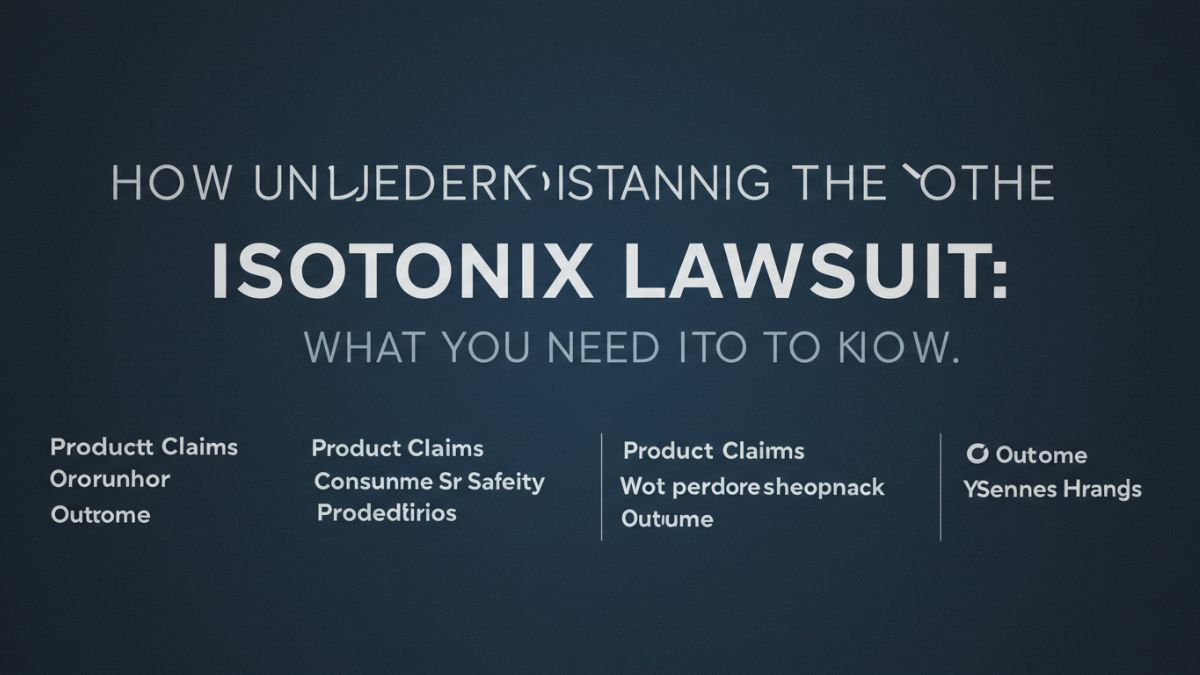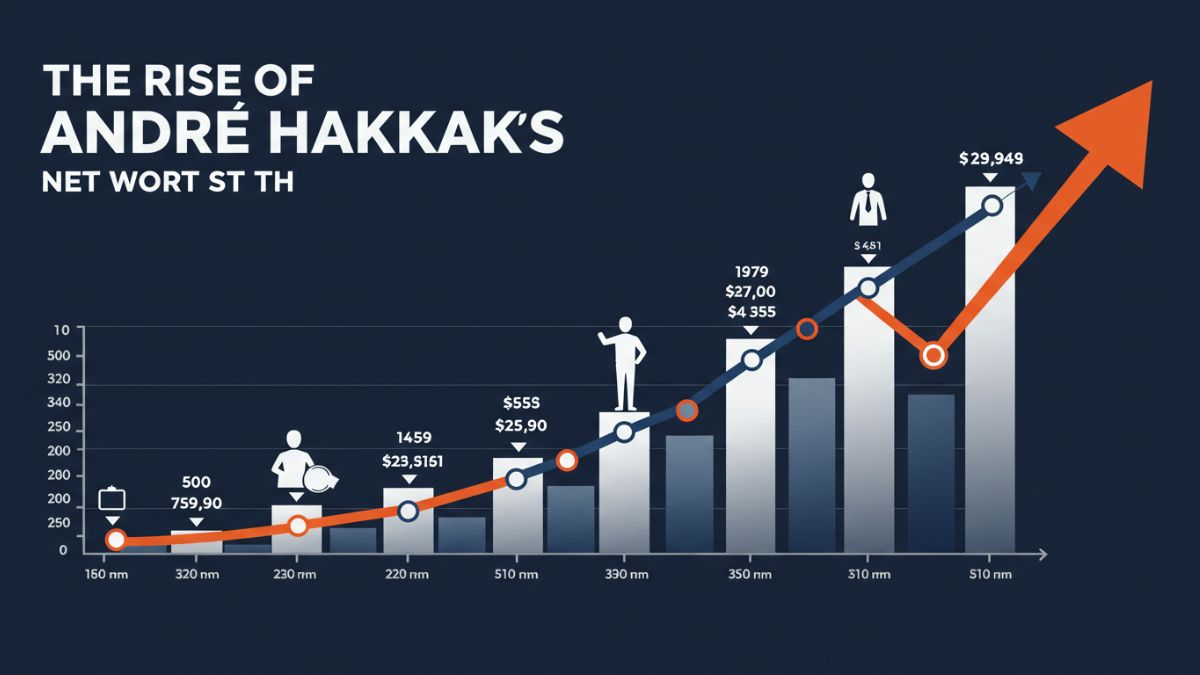The isotonix lawsuit is one such case that has sparked significant curiosity, leaving many wondering about the implications for consumers, sellers, and the brand itself.
This blog post aims to clearly explain the details of the Isotonix lawsuit, covering the product in question, the nature of the legal claims, and what the outcome could mean for stakeholders. Whether you’re a customer, a distributor, or just someone curious about the case, this guide will break it all down for you in simple terms.
What Is Isotonix? A Quick Overview
Isotonix refers to a line of nutritional supplements marketed by Market America, a well-known multi-level marketing (MLM) company. These supplements are designed to be delivered in isotonic form, meaning they are mixed with water for easy absorption in the body. Market America claims that Isotonix delivers essential vitamins, minerals, and nutrients more effectively than traditional supplements, making it a popular choice for health-conscious individuals.
The Isotonix range includes products targeting various health needs, such as:
- Immune support
- Energy and metabolism boosts
- Joint health
- Digestive health
While Isotonix has successfully built a loyal customer base, it has also faced scrutiny, particularly with regard to the ongoing lawsuit.
What Is the Isotonix Lawsuit About?
The Isotonix lawsuit is centered around claims of alleged misrepresentation and the legal challenges surrounding Market America’s multi-level marketing practices. Here’s an overview of the main accusations:
1. False Advertising
Some plaintiffs have alleged that Market America overstated the benefits of the Isotonix product line. Critics claim that the marketing materials often make unsubstantiated claims regarding the health benefits of the supplements, such as improved nutrient absorption and effectiveness compared to competing products.
For instance, opponents have argued that little scientific evidence has been provided to back the company’s core claim about the unique isotonic delivery system.
2. Multi-Level Marketing Practices
MLM companies, including Market America, frequently come under legal scrutiny regarding their business practices. Certain lawsuits and allegations suggest that Market America’s business model may share characteristics with a pyramid scheme. Critics claim that the majority of participants earn little to no income, while a small percentage at the top benefit disproportionately from the efforts of lower-level distributors.
3. Consumer Deception
The lawsuit also raises concerns about how Market America markets its business opportunities to independent distributors. Some former distributors allege they were given unrealistic expectations regarding the potential for financial success, leading to financial losses for those who invested significant resources into building their businesses.
Key Legal Questions Surrounding the Lawsuit
The Isotonix lawsuit raises several broader legal and ethical questions that could have significant implications for both the brand and the MLM industry as a whole. Some of these include:
- How are health claims by supplement companies regulated? The lawsuit highlights the importance of substantiating any health-related marketing claims with reliable scientific evidence.
- Are MLMs inherently exploitative? This ongoing debate often resurfaces in lawsuits challenging the foundational business practices of MLM companies.
- How can consumers be better protected from misleading advertising or business practices? If the allegations hold, there is a possibility of increased regulation for similar companies.
Potential Implications for Stakeholders
The outcome of the Isotonix lawsuit could have significant consequences for various groups connected to the brand.
For Consumers:
If the claims of false advertising are substantiated, the company could face stricter requirements in terms of advertising transparency. Consumers may also notice improvements in the way Isotonix products are advertised or their health claims verified.
For Independent Distributors:
Multi-level marketers who are part of Market America may find the business landscape more challenging if stricter business regulations are enforced. On the flip side, better transparency about income opportunities could enhance trust among future participants.
For Market America:
The company faces potential risks, including financial penalties and potential regulatory oversight. However, if they address the allegations head-on and adapt their practices, they might emerge as a stronger, more respected entity.
Regulatory Insight Into Dietary Supplements and MLMs
Understanding the broader regulatory environment can further contextualize the Isotonix lawsuit:
- FDA Oversight of Supplements
The U.S. Food and Drug Administration (FDA) monitors dietary supplements like Isotonix but does not pre-approve them in the same way it regulates prescription drugs. Manufacturers are, however, held accountable for ensuring their claims are not false or misleading.
- The Role of the FTC
The U.S. Federal Trade Commission (FTC) enforces laws against deceptive advertising and reviews multi-level marketing programs for compliance with trade regulations. If Market America’s practices are found to violate these standards, the FTC could enforce penalties or demand corrective measures.
What Happens Next?
The Isotonix lawsuit is ongoing, and its outcome will likely depend on the ability of both sides to present compelling evidence. The resolution could include settlements, regulatory changes, or clearer guidelines for both the supplement and MLM industries.
For now, stakeholders should remain informed and cautious. Here’s what you can do:
- For Consumers: Always research and verify the claims of any supplement or health product before purchasing. Consult healthcare professionals to ensure the product meets your needs.
- For Distributors: Review the terms of any MLM business model carefully and set realistic income expectations before committing resources.
- For Brands: Ensure that every health and business claim is substantiated by credible evidence and comply fully with regulatory guidelines.
Final Thoughts
Lawsuits like the one involving Isotonix prompt an important conversation about transparency, accountability, and ethics in business. Regardless of how this particular case unfolds, it serves as a reminder for companies, consumers, and distributors to pursue their goals with diligence and integrity.
If you’re interested in keeping up-to-date on developments surrounding Isotonix or similar cases, stay tuned to our blog for expert insights and analysis.
Conclusion
The Isotonix case underscores the critical importance of ethical practices, transparency, and adherence to legal standards in the health and wellness industry. For consumers, it highlights the need for due diligence and informed decision-making when choosing products or engaging with businesses. For brands and distributors, it serves as a powerful reminder of the responsibility to provide honest claims and comply with regulations. By fostering trust and accountability, the industry can continue to thrive while protecting the interests of all stakeholders involved.
FAQs
What is the Isotonix case about?
The Isotonix case centers on allegations regarding misleading marketing claims and questions of transparency around product efficacy and business practices. It has become a notable example of the importance of adhering to ethical and legal standards in the health and wellness industry.
Why is transparency so important in this industry?
Transparency builds trust between businesses and consumers. It ensures that customers have accurate information to make informed decisions. Without it, the credibility of brands and distributors can be jeopardized, which ultimately affects consumer safety and satisfaction.
How can consumers protect themselves from misleading claims?
Consumers should always conduct thorough research before purchasing products. This includes evaluating company reviews, verifying product claims through scientific evidence, and consulting trusted professionals. Staying informed is the best way to avoid falling victim to deceptive marketing practices.











